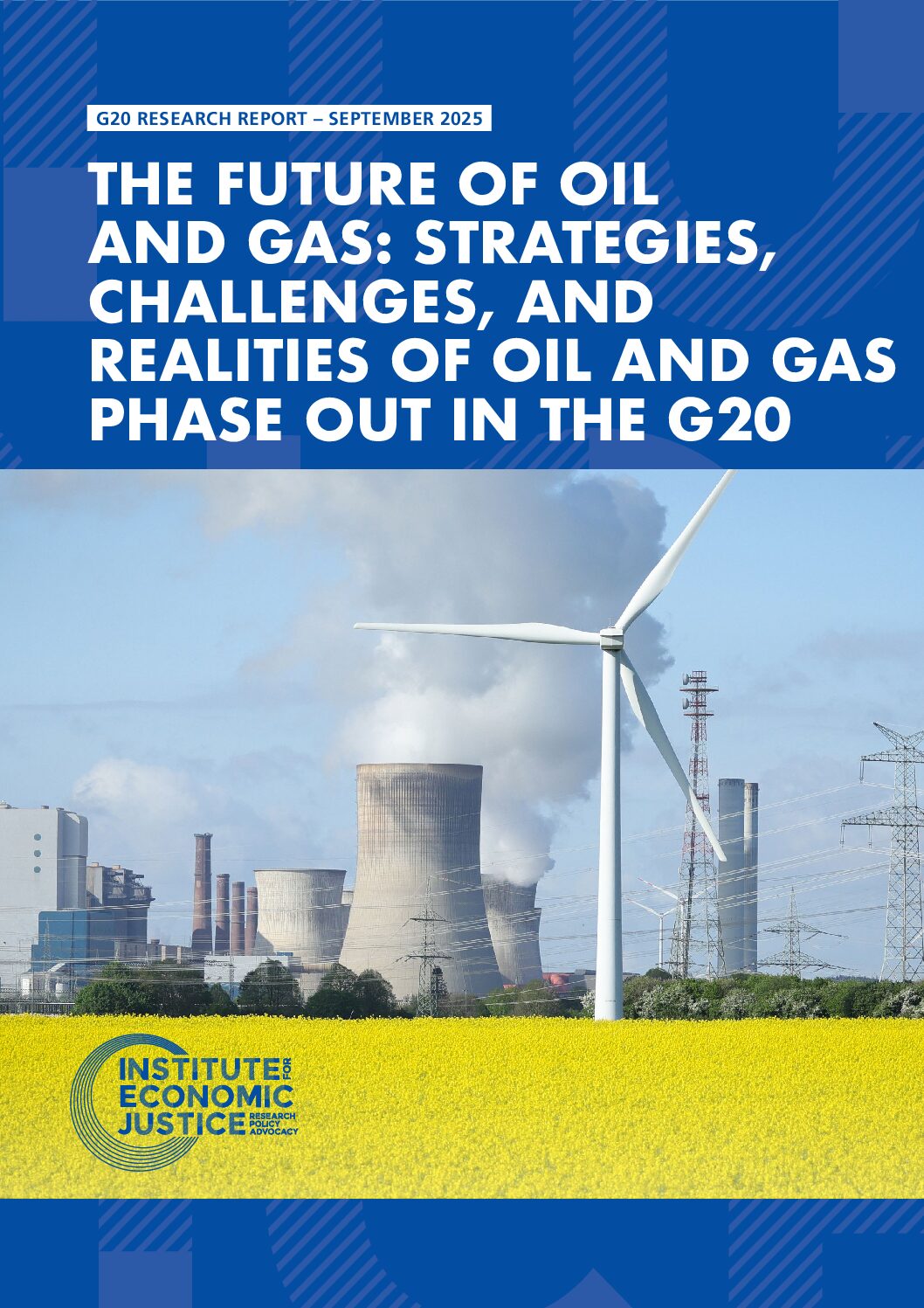Authors: Meenakshi Ajith and Mzwanele Ntshwanti
The G20 sits at the centre of the global climate dilemma. Member countries can either allow oil and gas production to surge, locking in a climate catastrophe, or scale it back in line with a just energy transition. Despite climate pledges, G20 states remain on track to produce more than double the fossil fuels consistent with a 1.5°C pathway. This contradiction highlights the entrenched role of oil and gas in economies and geopolitics, where energy security, subsidies, and industry pressure continue to delay decisive action.
IEJ’s Future of Oil and Gas report outlines why G20 countries remain locked into fossil fuel systems and how they can chart a fairer pathway to phase out. It explores the tension between commitments and expansion, technological and market trends, and the socio-economic risks of poorly managed transitions. While renewables are cheaper and more accessible than ever, fossil fuel expansion continues, driven by subsidies and a “last barrel” rush to monetise reserves before demand peaks.
The report makes the case for a just transition framework, grounded in solidarity, equity, and sustainability. It introduces a G20 Just Transition Taxonomy to guide national phaseout efforts while protecting workers, communities, and economies dependent on fossil fuels. The framework underscores the need for coordinated policy levers such as supply-side caps, subsidy reform, electrification, governance reforms, and systemic enablers like grid modernisation and industrial policy.
Key recommendations include:
- Governments legislating national phaseout plans, enshrining binding fossil fuel decline pathways.
- Redirecting fossil fuel subsidies towards renewable energy and social protection.
- Mandating National Oil Companies to pivot from extraction to renewable investment.
- Industry is halting new oil and gas expansion and embracing transparent, science-based targets.
- Multilateral institutions are reforming treaties that protect fossil fuels and ensuring finance flows to just transitions.
The report highlights that the G20 has both the technological capacity and financial capital to lead the global energy transition, but only if it acts with urgency and fairness. The South African G20 Presidency provides a historic opportunity to place just oil and gas phaseout firmly on the international agenda, anchored in the lived realities of the Global South.
Phasing out oil and gas is not only a climate necessity, it is a justice imperative.

